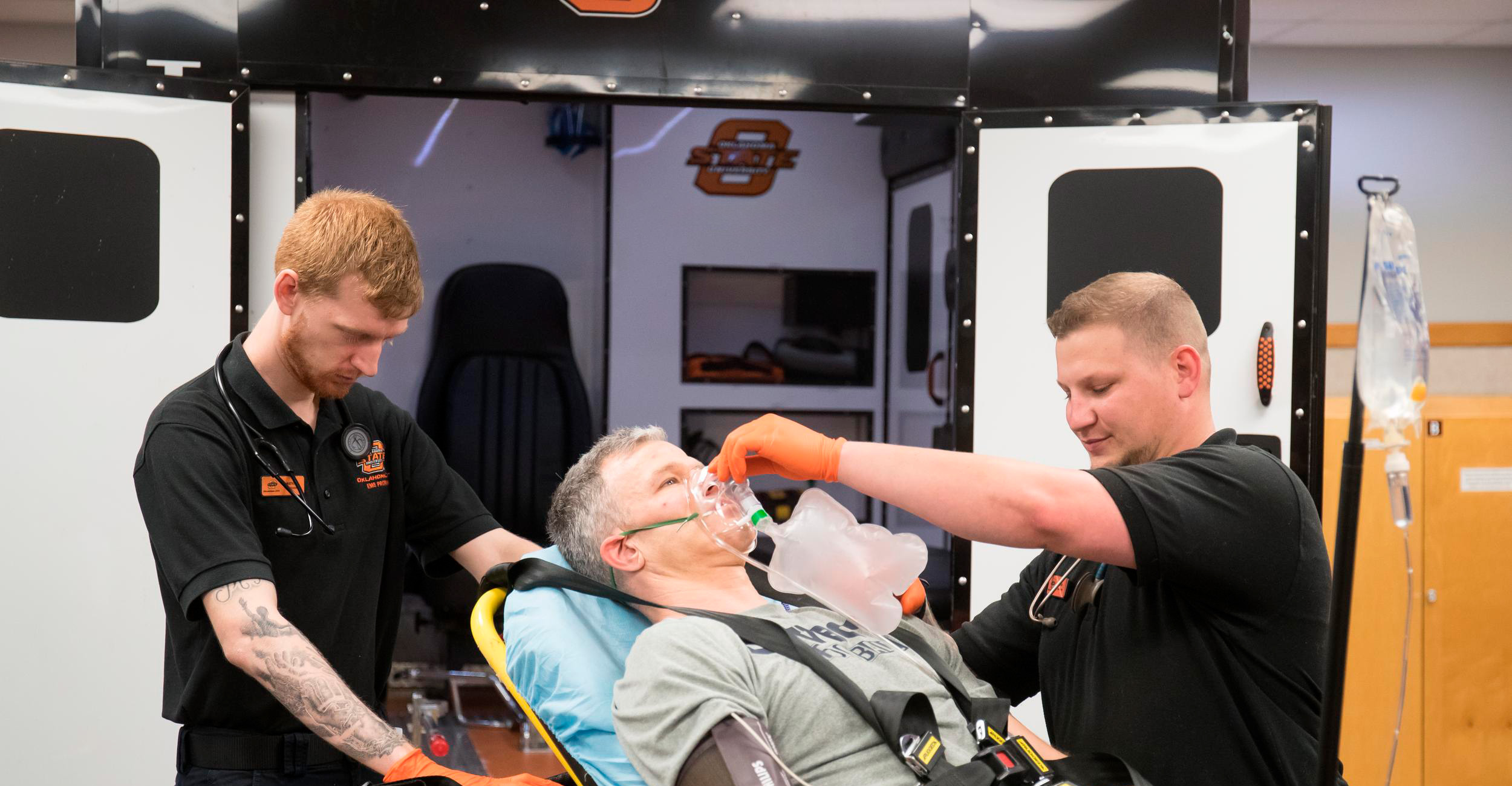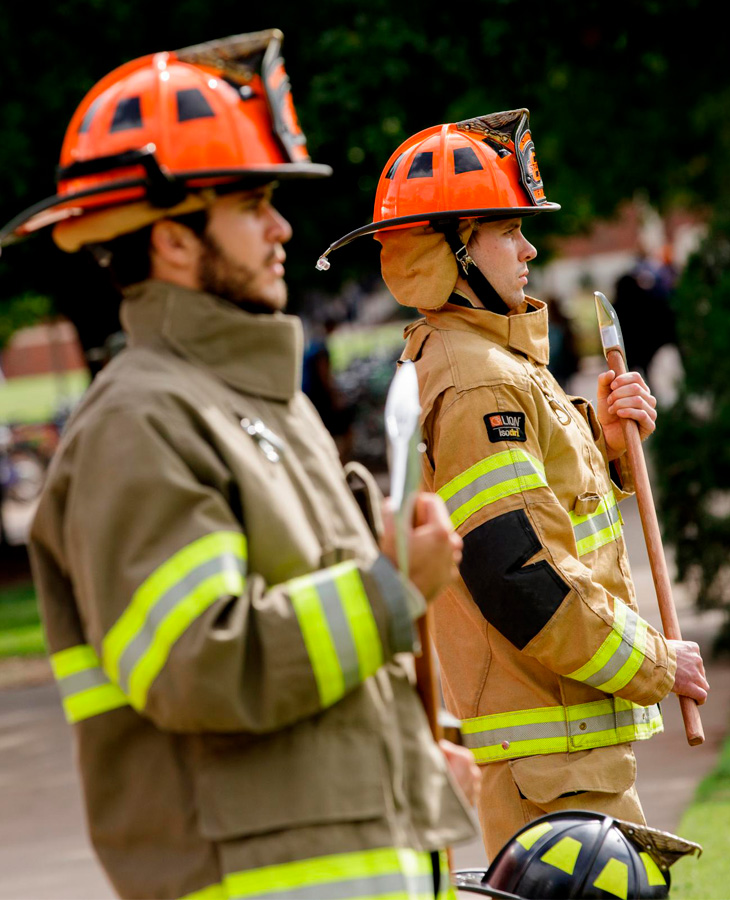
CEAT, CHS offer rural community paramedic training
Friday, February 16, 2024
Media Contact: Desa James | Communications Coordinator | 405-744-2669 | desa.james@okstate.edu
Oklahoma State University’s College of Engineering, Architecture and Technology — in collaboration with the OSU Center of Health Sciences — was awarded a grant from the Masonic Charity Foundation of Oklahoma to help develop the Community Paramedicine Curriculum.
The grant will establish a training program, with content provided by OSU-CHS, for paramedics in rural Oklahoma that is accessible and affordable to responders and providers in local communities.
CEAT has years of experience delivering training programs across Oklahoma and the world.
The Community Paramedicine curriculum and training will be comprised of approximately 200 hours, including instruction and clinical experience. This program is designed to propel existing paramedics to the advanced level of community paramedics, a role distinctively centered on the provision of extended care for chronic conditions, diverging from the immediate response to acute emergencies typically associated with daily Emergency Medical Services operations.

A key component of the curriculum will be an in-depth exploration of laboratory values, empowering students with the knowledge and skills necessary to interpret and act upon diagnostic information effectively. Additionally, students will receive training on the utilization of a portable Blood Analysis System. A system which provides instant lab results for the patient within their own home.
Upon completion of the course, students will be eligible to take the Community Paramedics Certification Examination administered by the International Board of Specialty Certification.
"Given the nationwide shortage of EMS providers and funding cuts to EMS services, many fire departments have absorbed local ambulance services into their fire stations," said J.W. Snell, a seasoned paramedic and EMS manager at OSU’s Fire Service Training. "OSU, through FST’s statewide outreach-training program, addresses this by providing an EMS program to collaborate with fire services and the communities they serve on a daily basis.”
Dr. John Veenstra, CEAT interim dean, said the program will help people by improving accessibility and availability.
“Community paramedicine represents a mobile integrated health model that is a patient-centered, community-engaged approach to delivery higher quality and more cost-effective medical care by coordinating community resources and helping patients get the right care at the right location, including in their own homes,” Veenstra said.
“The goal of the CP program for the state of Oklahoma is to improve the access and availability of primary and preventive health care in rural communities that are currently underserved, resulting in positive patient outcomes and satisfaction.”
The Masonic Charity Foundation is one of Oklahoma's oldest operating nonprofits. It has a longstanding mission of providing funds to organizations that can have a significant impact on the community. This grant continues MCFOK’s history of charity that truly makes a difference for Oklahomans.
“We know that these rural communities are struggling; we have firsthand experience trying to help Oklahoma Masons and their families navigate health issues in rural communities with a challenged healthcare system,” the MCFOK said in a statement.
“We also know that Community Paramedicine programs are widely implemented across the U.S. to address unmet health and social needs for these underserved/rural communities. It is our hope that by implementing this program, rural Oklahomans will have the tools to better care for themselves and, in turn, see their lives and communities thrive.”
Veenstra said that OSU is honored to be awarded the grant.
"The concept of the CP program fits into OSU’s strategic plan under the One Health priority, and is an interdisciplinary collaboration with the OSU CHS, the Center for Rural Health, CEAT, Ferguson College of Agriculture, and the College of Veterinary Medicine each with specific expertise needed to make this program successful," he said.
